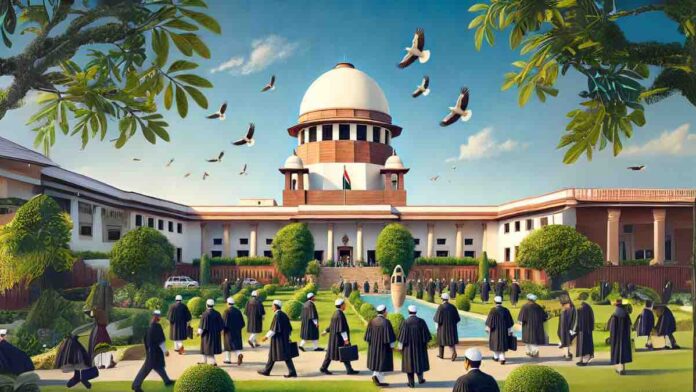The Supreme Court of India, in a significant ruling, has set aside a High Court judgment that had acquitted two men convicted of rape under the Indian Penal Code (IPC) and the Protection of Children from Sexual Offences (POCSO) Act, 2012. A bench of Justices Satish Chandra Sharma and Sanjay Kumar held that procedural irregularities,
To Read More Please Subscribe to VIP Membership for Unlimited Access to All the Articles, Download Available Copies of Judgments/Order, Acess to Central/State Bare Acts, Advertisement Free Content, Access to More than 4000 Legal Drafts( Readymade Editable Formats of Suits, Petitions, Writs, Legal Notices, Divorce Petitions, 138 Notices, Bail Applications etc.) in Hindi and English.




